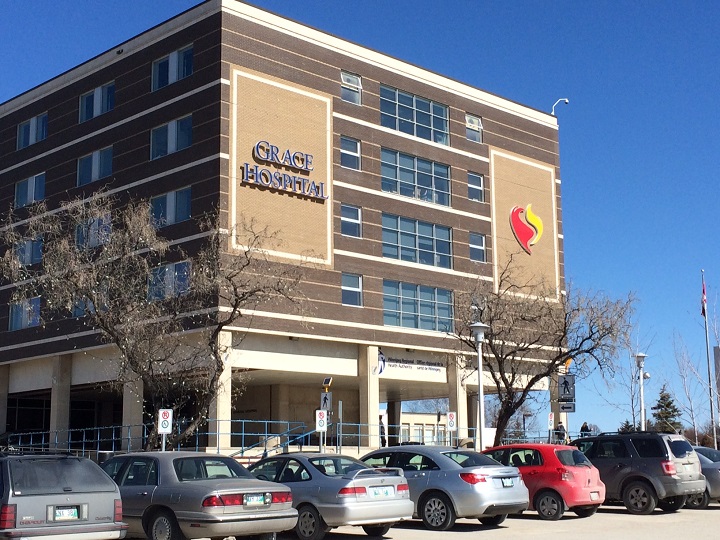The Winnipeg Regional Health Authority has pulled a pamphlet on pain medication that was used by the Grace Hospital, Global News has learned.

The pamphlet outlines how a patient can get the most out of their pain medication. It tells the patient to take as much pain medication as they need, but don’t go over their prescription. It goes on to say: “Don’t worry about addiction, this does not happen if you are taking medication for pain.”
A statement Overdose Awareness Manitoba calls “shocking”, and simply not true.
“You can’t just say, ‘take your pain medication, you won’t get addicted to it,” Overdose Awareness co-founder Arlene Last-Kolb told Global News. “We know that’s not true.”
The WRHA confirmed the brochure was being distributed to patients at the Grace Hospital and that it hadn’t been updated in years. A spokesperson said the document was outdated and inappropriate and was immediately pulled from the hospital.
“We would like to thank the patient and CJOB/Global for bringing this to our attention, because the brochure is indeed outdated and inappropriate. Grace Hospital pulled the brochure from circulation after having it brought to our attention on Thursday, Feb. 20. It has been removed from the print shop and will no longer be offered to patients,” a WRHA spokesperson said in an emailed statement to Global News.
- Life in the forest: How Stanley Park’s longest resident survived a changing landscape
- ‘Love at first sight’: Snow leopard at Toronto Zoo pregnant for 1st time
- Buzz kill? Gen Z less interested in coffee than older Canadians, survey shows
- Carbon rebate labelling in bank deposits fuelling confusion, minister says
“All staff in Grace’s pre-admission clinic have been made aware. Grace Hospital will be reviewing the need for a brochure of this type, and will ensure the messaging of any future publications reflects clinical best practice with respect to pain medication, as well as ensuring all patients receive the most accurate and appropriate messaging related to pain management before and after surgery.”
The spokesperson went on to say that written material distributed to patients is determined by individual health-care facilities and programs, as well as the discretion of other physicians, nurses and health-care professionals.
“The WRHA has reached out to other facilities in the region to ensure they review their existing materials to avoid further distributing messaging such as that included in this brochure,” the spokesperson said.
Last-Kolb says it was brought to her attention by a patient. She says the document is outdated and dangerous, and it could have impacted hundreds of people who went to the hospital without addiction, but became hooked on pain killers after.
“We have a responsibility when we give out an opioid or prescribe an opioid that there’s much more to it than just that,” she said. “I know families that have lost everything because of prescription medication.”
It hits close to home for Last-Kolb, who lost her son to a drug overdose. She also says her mother became addicted to her medication after having joint replacement surgery.
“You cannot give a medication like an opioid to anybody and not think that they can get addicted,” she said. “It isn’t fair to offer this kind of medication out to people that could lead to this, and then walk away and not go all the way through.”



Comments